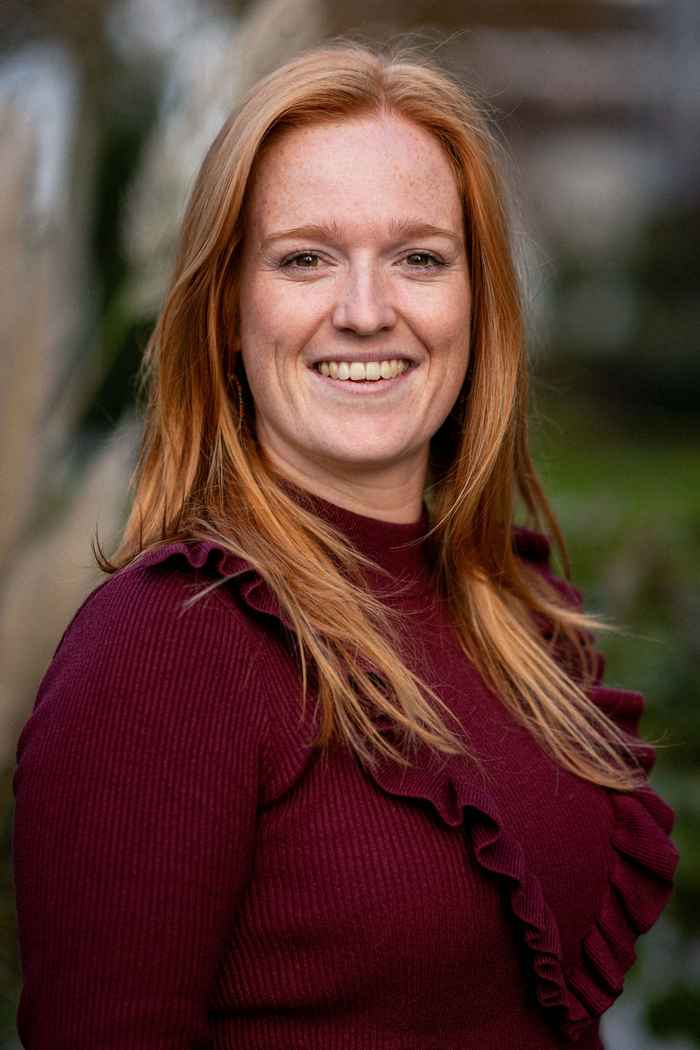Charlotte Nederpel
Graduate Green Life Sciences

How much freedom did you have when selecting courses or projects? Are there opportunities to tailor the programme to your interests?
I had a great deal of freedom in what I wanted to choose in terms of courses and extra projects. For example, I took the Tesla minor (now called Collective Futures) in addition to the standard courses. During this, you work with Master's students from other programmes as student consultants for six months. Fitting this into my curriculum was not a problem.
How practical or theoretical is the programme?
The programme is theoretically very strong. However, you will still gain a lot of practical experience through the two eight-month internships. Especially since there is the possibility to do your second internship at a company in the industry, giving you an immediate insight into how the sector works.
How would you describe the atmosphere within the programme?
There is a good atmosphere within the programme; many different research groups are involved in teaching. We were with fifteen Master's students in the year layer and because you attend lectures together intensively, you quickly grow closer together. During the internship period, your work is a bit more individualistic, but you do work with your research group and other students doing their internships.
What types of thesis or graduation projects are possible? Can you provide an example of your own project?
The final project at this programme consists of two major research internships and a literature review. If you want, you can choose to do additional projects, such as the minor Collective Futures. My internship with Rijk Zwaan was about the effects of far-red light on virus development in tomatoes. While my literature review was about phosphate deficiency in soil and which micro-organisms interact with the plant to solve that. In Collective Futures, we worked on implementing sustainable plastic in bread bags and milk packaging. All in all, there was plenty of subject diversity.
Was it easy for you to find a job after your Master’s? How did you end up in your current role?
The Dutch green sector has a very wide range of jobs for students completing this Master's degree. For example: plant breeding companies, greenhouse horticulture, biological crop protection, fertilisation, substrate companies, biology teaching, and research. You can specialise in a specific part of the plant that you find interesting, or go on to work in a generalistic way. There is something for everyone.
What advice would you give to someone considering this Master’s programme?
Visit an information event such as an Open Day, meet the teachers and (former) students and see if you feel at home. If you find the subjects interesting and feel at ease, that often says it all!